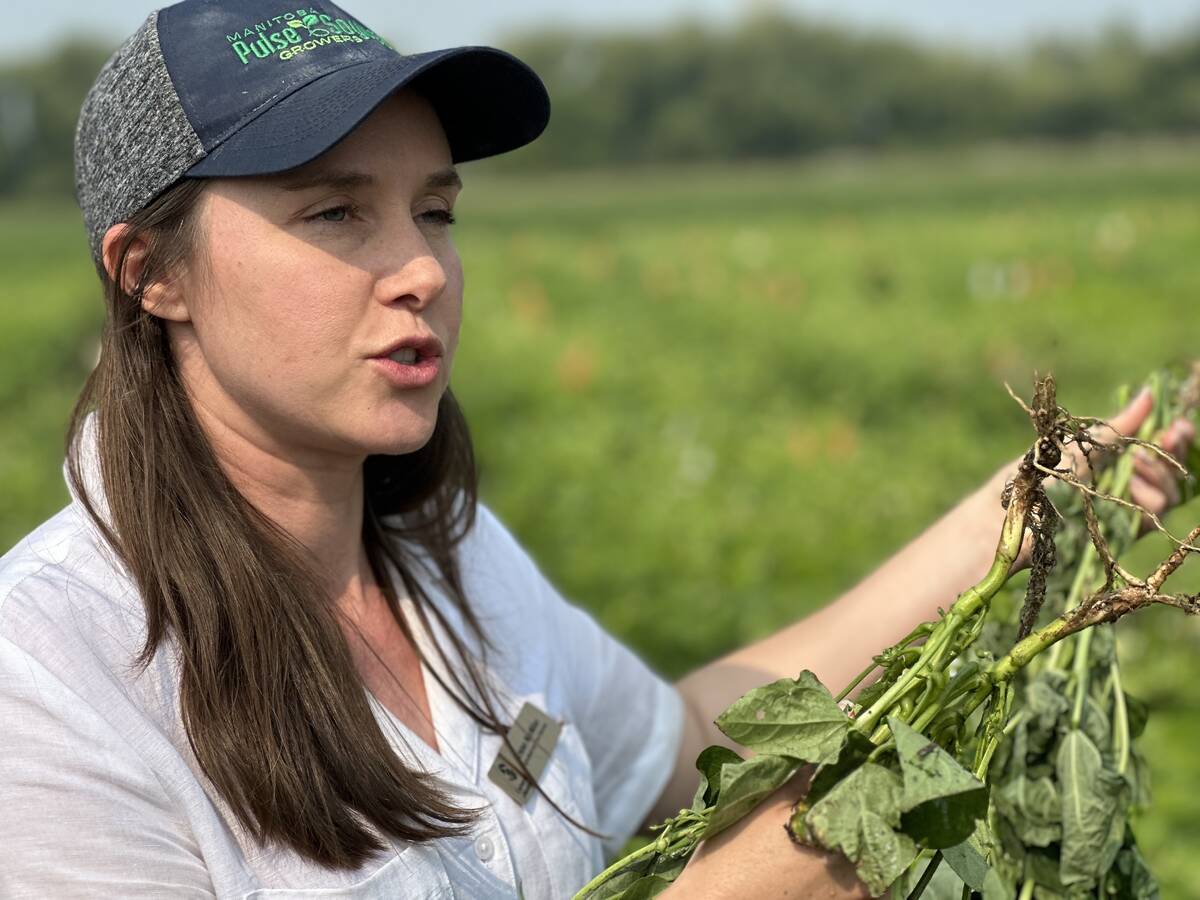There is no reason why a national biofuel mandate needs to be tied to the passage of the Conservative’s proposed environmental legislation, says the political opposition.
When former environment minister Rona Ambrose unveiled her government’s plan to implement a five percent renewable content in gasoline by 2010, and a two percent requirement in diesel fuel and heating oil by 2012, she made it sound like the two were linked.
“The passage of Canada’s Clean Air Act is critical to allowing the government to implement our biofuels requirements for Canada,” said Ambrose in her Dec. 20 announcement.
Read Also

Lower nitrogen rates in dry beans could pay off for farmers
Manitoba research is testing whether reduced nitrogen fertilizer in dry beans can maintain yields while cutting costs and lowering greenhouse gas emissions.
That comment prompted one politician to speculate that the proposed federal biofuel mandate would never see the light of day.
“The likelihood of the Clean Air Act getting passage in Ottawa is about as likely as us waking up tomorrow morning and all the snow in Saskatchewan will be gone,” said Saskatchewan deputy premier Clay Serby.
“This is political posturing in my view.”
Liberal environment critic John Godfrey called it fear mongering. He said the Conservatives are doing everything they can to build support for the Clean Air Act, including tying it to the biofuel announcement.
The Conservatives intend to develop and implement a federal regulation requiring renewable fuel under the Canadian Environmental Protection Act of 1999. They contend amendments to the fuel division of that act proposed under Canada’s Clean Air Act are needed for an effective regulation.
But Godfrey said that is an unnecessary complication.
“They don’t need to pass a whole great big act. They can simply amend the existing act,” he said.
Godfrey doesn’t believe the Conservative biofuel proposal will fail if the party’s Clean Air Act is defeated, considering the mandate has the support of the Liberals, whose newly minted leader, Stéphane Dion, is proposing 10 percent renewable fuels content in gasoline by 2010.
“Farmers can take some comfort because both parties are on the same page, except that Mr. Dion’s goals are a whole lot more ambitious,” said Godfrey.
The Liberals appear intent on making the biofuel issue a plank in the platform for what many expect will be a 2007 election.
Dion was sharply critical of the Dec. 20 announcement.
“By choosing to only mandate that Canadian fuels contain five percent renewable content, he is not going far enough,” Dion said of prime minister Stephan Harper.
Dion also took a jab at the Conservative’s $200 million capital assistance program designed to encourage producer participation in the biofuel sector.
He said funding for that program is directly tied to investment by farmers, which means producers have to shell out their own money first in order to trigger any government assistance.
“By refusing to make direct investments I am concerned that ethanol expansion will not grow nearly fast enough,” said Dion.
“Liberal governments made direct investments of $117 million of up-front support for the construction of production facilities,” he added, referring to the former government’s two-phase Ethanol Expansion Program.
But that program wasn’t popular with western-based ethanol promoters.
The Saskatchewan Ethanol Development Council complained the bulk of the money went to corporate interests like Husky Energy and NorAmera BioEnergy Corp. and to corn-based ethanol projects in Eastern Canada.















